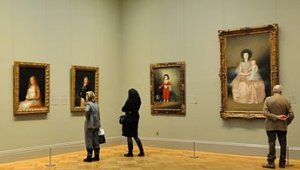

Pierre Bourdieu is widely regarded as one of the most influential sociologists of the 20th century. His written work encompasses a broad range of topics including art, culture, religion, science, the media and politics. However, he is perhaps most well-known for his research on class identity and his theories regarding the reproduction of social class across the generations. Indeed, his book Distinction – in which he analysed the tastes and preferences of the French middle classes in the 1960s – was voted one of the top ten most important sociological books of the last century by the International Sociological Association.
To understand Bourdieu’s theories on the reproduction of social class it is helpful to first explore three inter-related conceptual tools – known as habitus, field and capital – which he developed to analyse the social world. These conceptual tools are used extensively by social researchers today and form part of the standard vocabulary within disciplines such as sociology, education and anthropology.
Habitus
“[the term habitus] designates a way of being, a habitual state (especially of the body) and, in particular, a predisposition, tendency, propensity or inclination”1
Bourdieu used the term habitus to refer to a set of deeply ingrained habits or dispositions that we have acquired from our past circumstances – our family upbringing, educational experiences and interactions with our peers – which help shape our perceptions, feelings and actions in the present moment. These dispositions could include physical inclinations – such as our posture or the way that we speak – or they could include mental or psychological habits – such as our tastes and preferences and our ways of thinking about the world around us.
While our past experiences are unique to each of us, Bourdieu argued that some structural aspects of those experiences will be shared by others of the same social class or social grouping (e.g. people who share the same gender, ethnicity, sexuality, occupation, nationality etc.). These similar experiences then produce a shared habitus – a set of shared dispositions which help to define the social group and differentiate it from other social groups, creating a sort of class or group identity. For example, people from the same social class may share similar tastes in terms of what they do with their leisure time. One illustration of this is the sport of fox-hunting. While this is likely to be seen as a perfectly natural leisure activity to a member of the upper classes of British society, this may feel very strange to a member of the working class population who is unlikely to have had any direct experience of this sport.
Field
To understand how our habitus affects our social interactions, Bourdieu argued that it was first necessary to examine the social spaces in which these interactions occur. Bourdieu saw society as being made up of many different social fields in which people compete with one another over valuable resources. A social field is quite a fuzzy concept. It could, for example, refer to a broad social arena such as education, the economy, politics, science or art, or a specific profession such as Law or Medicine. Equally it could refer to an individual institution, such as a school or a particular workplace.
Bourdieu saw society as being made up of many different social fields in which people compete with one another over valuable resources.
Bourdieu saw different social fields as being fairly autonomous, with their own distinct rules, boundaries, histories and dominant players. However, he noted that how a person fares in one social field may affect their position in another. For instance, their education or the type of school they went to may influence their fortunes in the economic sphere, by affecting the type of job they get and therefore their level of income.
Capital

Bourdieu argued that a person’s positioning within a particular field would depend on the volume and composition of capital they possess. Here, the term capital refers to resources, of which Bourdieu identified four major types:
- Economic – money (income and savings) and assets (e.g. house, car etc.).
- Cultural – this covers different forms of knowledge, including knowledge of the “rules of the game” (e.g. how to act in particular situations), knowledge of cultural traditions, tastes and preferences (e.g. knowing what to wear, how to speak) and knowledge of the literary, music and artistic canon. It could also refer to ownership of cultural goods (e.g. books, music, art, scientific instruments) and the possession of formally recognised educational qualifications (e.g. degrees and diplomas). Mastery of language also fits into this category (sometimes referred to as linguistic capital).
- Social – this refers to a person’s network of social relations (their family, friends and their colleagues) that may give them access to material resources (money and property) and other resources such as information, knowledge and power.
- Symbolic – this is the total of all the forms of capital that an individual may possess that is the basis of prestige, honour or recognition within a particular field.
Not everyone enters into a social field with the same volume or composition of capital, meaning that certain people are advantaged at the outset. Bourdieu argued that these people can then use this advantage to accumulate more capital and advance further within a particular field than their peers. A modern example of this relates to the issue of unpaid internships. Young adults who have good social connections (i.e. high levels of social capital) may be more likely to find out about internship opportunities via their family contacts. Furthermore, if their family are wealthy (i.e. they have high levels of economic capital), they may be able to take on unpaid work while their family continue to provide them with economic support. This unpaid work experience can then help them get a foot on the career ladder and place them in a better position in the economic sphere than their counterparts who do not have the same social connections and material wealth.
The relationship between habitus, field and capital
According to Bourdieu, the three “thinking tools” of habitus, field and capital are highly interconnected. He summarised this relationship using the following formula:
[(habitus) x (capital)] + field = practice
This can be read as follows: our practice (the way we act or behave) is the result of the relationship between our habitus (our dispositions acquired from our past circumstances) and our capital (the resources we have at our disposal), and how these interact with the current state of play within a particular social field (the structures, institutions and unwritten rules of the game). By putting these three concepts together in this form, Bourdieu effectively developed a unifying theory of social practice. This theory underpinned much of his work and was used to support his description of how social class gets reproduced within society, focusing in particular on the workings of the education system.
The Reproduction of Social Class
For Bourdieu, it was the possession of cultural capital that was the key to understanding the reproduction of social class. In his book, Reproduction in Education, Society and Culture which he wrote with Jean-Claude Passeron, he claimed that the cultural knowledge that was considered to be “legitimate” in society was that which was possessed by the dominant classes. Drawing on a range of empirical data to support his arguments, he showed that this “legitimate” cultural knowledge was unevenly distributed amongst the population, with middle and upper class families possessing larger quantities of cultural capital than working class families. He then argued that children born into these dominant classes inherited this cultural capital as part of their upbringing. That is, by observing and imitating their parents, they developed the “proper” ways of looking at the world and the “correct” ways of behaving and speaking. They also came into the possession of the “right” cultural goods, in the form of books, music and art.

This cultural capital, which is embedded within the habitus of these children via their upbringing, then comes into contact with the field of the school. Here, Bourdieu argued, teachers tended to recognise and reward this privileged knowledge – whether it is linguistic competence or engagement with music, literature and art – over other forms of knowledge, putting these children at a distinct advantage to their peers. Furthermore, their acquisition of this privileged information became accredited via the award of educational qualifications, further increasing the amounts of cultural capital in their possession. Meanwhile, children from the lower social classes were, according to Bourdieu, more likely to underperform or drop out of school altogether because of a mismatch between their habitus and the school environment.
To understand this idea of a disjuncture between one’s habitus and a particular social field, it is helpful to imagine yourself in attendance at a social situation where you feel very awkward or ill at ease. Perhaps you don’t talk or dress in the same way as the other people at the event, or feel unable to participate in the main topics of conversation. This sense of discomfort, or what Bourdieu describes as the feeling of being a “fish out of water”, may be due to a misalignment between your habitus (your dispositions) and the underlying practices and expected behaviours of the social situation you have entered into. In other words, your past circumstances have left you ill-equipped to develop a “feel for the game”.
Bourdieu explained how we can feel awkward – like a “fish out of water” – when the unwritten rules of a social environment do not match our natural dispositions.
Importantly, because these social forces are not happening at the level of consciousness, he argued that middle and upper class children may never become aware that the education system is skewed in their favour. This means they may believe that they deserve all of their successes, even though many of their achievements may be inherited as a result of their parents’ social position. Children from the lower social classes, on the other hand, may end up believing that their educational failures are caused by their own shortcomings, leading them to drop out of school and avoid engaging in further or higher education opportunities. In as much as these powerful social forces are left unchallenged, Bourdieu argued that they will end up reproducing social class by conferring educational advantages on children from the dominant classes, giving them access to greater opportunities within the job market and therefore an elevated position within the economic sphere.
Tackling Class-based Inequality
One of the major criticisms of Bourdieu’s work is that it is too deterministic in nature. However, his social theory does not suggest that our fates are unalterable; our habitus and capital are open to change through our interactions with different social fields. Indeed, politicians are often keen to develop policies that break the vicious cycle of class-based inequality and stimulate greater social mobility within society. For example, in the UK, Universities are expected to adopt Widening Participation policies to encourage pupils from lower income families to enter into Higher Education. These policies often include the provision of additional financial resources for pupils via maintenance grants or the lowering of grade requirements for entry onto courses.

Despite these policy interventions, however, structural inequalities in education persist, with places in some of the most prestigious universities disproportionately being taken up by the middle and upper classes. One reason for this may be to do with some of the more hidden social and cultural forces that are affecting working class students’ choices. For example, a teenager who has never had any contact with the University environment – either through their family or social circle – may develop a sense that University is “not for them”. Or upon gaining a University place they may feel like a “fish out of water” because the unwritten rules of the environment do not match their natural dispositions (their habitus does not align with the field). These internalised social barriers can be much harder to identify and challenge than material or financial barriers to upwards mobility. However, Bourdieu’s theories suggest that, if politicians truly wish to tackle class-based inequality, they will need to find ways to uncover and address the more complex social and cultural forces that are contributing to the maintenance of the current social order.
Further Resources
If you wish to read more about Bourdieu’s theory of social practice and the concepts of habitus, field and capital you can find these in his books: Outline of a Theory of Practice; Reproduction in Education, Society and Culture; and Distinction.
Bourdieu’s writing can sometimes feel quite complex and inaccessible. We would therefore highly recommend complementing a reading of his work with the following books: Pierre Bourdieu: Key Concepts by Michael Grenfell and Locating Bourdieu by Deborah Reed- Danohay.
We have also included some additional video resources on this topic on our Mind Attic YouTube channel playlist

